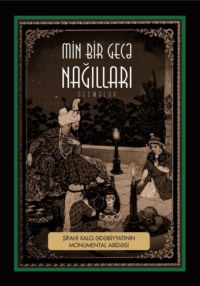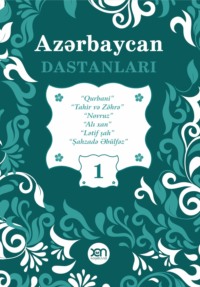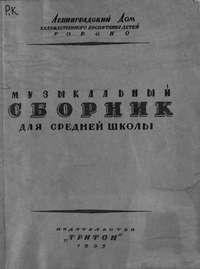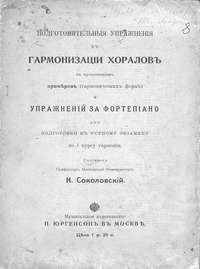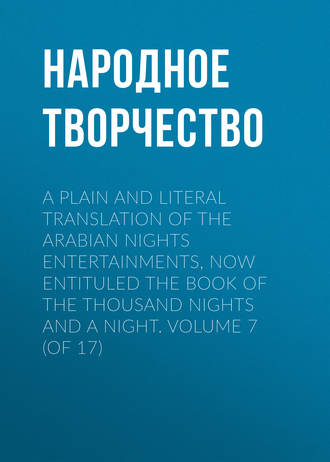 полная версия
полная версияA plain and literal translation of the Arabian nights entertainments, now entituled The Book of the Thousand Nights and a Night. Volume 7 (of 17)
She resumed, It hath reached me, O auspicious King, that Ardashir, the King’s son said to the old woman, “Allah upon thee, O my mother, take pity on my strangerhood and the streaming of my tears.” Replied she, “By Allah, O my son, thy words rend my heart, but my hand hath no cunning wherewith to help thee.” Quoth he, “I beseech thee of thy favour, carry her a letter and kiss her hands for me.” So she had compassion on him and said, “Write what thou wilt and I will bear it to her.” When he heard this, he was ready to fly for joy and calling for ink-case and paper, wrote these couplets:—
O Hayát al-Nufús, be gen’rous, and inclineTo one who loving thee for parting’s doomed to pine.I was in all delight, in gladsomest of life,But now I am distraught with sufferings condign.To wakefulness I cling through longsomeness of nightAnd with me sorrow chats268 through each sad eve of mine;Pity a lover sad, a sore afflicted wretchWhose eyelids ever ulcered are with tearful brine;And when the morning comes at last, the real mornHe finds him drunken and distraught with passion’s wine.Then he folded the scroll and kissing it, gave it to the old woman; after which he put his hand to a chest and took out a second purse containing an hundred dinars, which he presented to her, saying, “Divide this among the slave girls.” She refused it and cried, “By Allah, O my son, I am not with thee for aught of this!”; however, he thanked her and answered, “There is no help but that thou accept of it.” So she took it and kissing his hands, returned home; and going in to the Princess, cried, “O my lady, I have brought thee somewhat the like whereof is not with the people of our city, and it cometh from a handsome young man, than whom there is not a goodlier on earth’s face!” She asked, “O my nurse, and whence cometh the youth?” and the old woman answered, “From the parts of Hind; and he hath given me this dress of gold brocade, embroidered with pearls and gems and worth the Kingdom of Chosroës and Cæsar.” Thereupon she opened the dress and the whole palace was illuminated by its brightness, because of the beauty of its fashion and the wealth of unions and jewels wherewith it was broidered, and all who were present marvelled at it. The Princess examined it and, judging it to be worth no less than a whole year’s revenue of her father’s kingdom, said to the old woman, “O my nurse, cometh this dress from him or from another?”269 Replied she, “From him;” and Hayat al-Nufus asked, “Is this trader of our town or a stranger?” The old woman answered, “He is a foreigner, O my lady, newly come hither; and by Allah he hath servants and slaves; and he is fair of face, symmetrical of form, well mannered, open-handed and open-hearted, never saw I a goodlier than he, save thyself.” The King’s daughter rejoined, “Indeed this is an extraordinary thing, that a dress like this, which money cannot buy, should be in the hands of a merchant! What price did he set on it, O my nurse?” Quoth she, “By Allah, he would set no price on it, but gave me back the money thou sentest by me and swore that he would take naught thereof, saying:—’Tis a gift from me to the King’s daughter; for it beseemeth none but her; and if she will not accept it, I make thee a present of it.” Cried the Princess, “By Allah, this is indeed marvellous generosity and wondrous munificence! But I fear the issue of his affair, lest haply270 he be brought to necessity. Why didst thou not ask him, O my nurse, if he had any desire, that we might fulfil it for him?” The nurse replied, “O my lady, I did ask him, and he said to me:—I have indeed a desire; but he would not tell me what it was. However, he gave me this letter and said:—Carry it to the Princess.” So Hayat al-Nufus took the letter and opened and read it to the end; whereupon she was sore chafed; and lost temper and changing colour for anger she cried out to the old woman, saying, “Woe to thee, O nurse! What is the name of this dog who durst write this language to a King’s daughter? What affinity is there between me and this hound that he should address me thus? By Almighty Allah, Lord of the well Zemzem and of the Hatim Wall,271 but that I fear the Omnipotent, the Most High, I would send and bind the cur’s hands behind him and slit his nostrils, and shear off his nose and ears and after, by way of example, crucify him on the gate of the bazar wherein is his booth!” When the old woman heard these words, she waxed yellow; her side muscles272 quivered and her tongue clave to her mouth; but she heartened her heart and said, “Softly, O my lady! What is there in his letter to trouble thee thus? Is it aught but a memorial containing his complaint to thee of poverty or oppression, from which he hopeth to be relieved by thy favour?” Replied she, “No, by Allah, O my nurse, ’tis naught of this; but verses and shameful words! However, O my nurse, this dog must be in one of three cases: either he is Jinn-mad, and hath no wit, or he seeketh his own slaughter, or else he is assisted to his wish of me by some one of exceeding puissance and a mighty Sultan. Or hath he heard that I am one of the baggages of the city, who lie a night or two with whosoever seeketh them, that he writeth me immodest verses to debauch my reason by talking of such matters?” Rejoined the old woman, “By Allah, O my lady, thou sayst sooth! But reck not thou of yonder ignorant hound, for thou art seated in thy lofty, firm-builded and unapproachable palace, to which the very birds cannot soar neither the wind pass over it, and as for him, he is clean distraught. Wherefore do thou write him a letter and chide him angrily and spare him no manner of reproof, but threaten him with dreadful threats and menace him with death and say to him:—Whence hast thou knowledge of me, that thou durst write me, O dog of a merchant, O thou who trudgest far and wide all thy days in wilds and wolds for the sake of gaining a dirham or a dinar? By Allah, except thou awake from thy sleep and put off thine intoxication, I will assuredly crucify thee on the gate of the market-street wherein is thy shop!” Quoth the Princess, “I fear lest he presume, if I write to him”; and quoth the nurse, “And pray what is he and what is his rank that he should presume to us? Indeed, we write him but to the intent that his presumption may be cut off and his fear magnified.” And she ceased not craftily to persuade her, till she called for ink-case and paper and wrote him these couplets:—
O thou who claimest to be prey of love and ecstasy;Thou, who for passion spendest nights in grief and saddest gree:Say, dost thou (haughty one!) desire enjoyment of the moon?Did man e’er sue the moon for grace whate’er his lunacy?I verily will counsel thee with rede the best to hear:Cut short this course ere come thou nigh sore risk, nay death, to dree!If thou to this request return, surely on thee shall fallSore punishment, for vile offence a grievous penalty.Be reasonable then, be wise, hark back unto thy wits;Behold, in very truth I speak with best advice to thee:By Him who did all things that be create from nothingness;Who dressed the face of heaven with stars in brightest radiancy:If in the like of this thy speech thou dare to sin again!I’ll surely have thee crucified upon a trunk of tree.Then she rolled up the letter and gave it to the old woman who took it and, repairing to Ardashir’s shop, delivered it to him,–And Shahrazad perceived the dawn of day and ceased saying her permitted say.
Now when it was the Seven Hundred and Twenty-third Night,She said, It hath reached me, O auspicious King, that when the old woman took that letter from Hayat al-Nufus she fared forth till she found the youth who was sitting in his shop and gave it to him, saying, “Read thine answer and know that when she perused thy paper she was wroth with exceeding wrath; but I soothed her and spake her fair, till she consented to write thee a reply.” He took the letter joyfully but, when he had read it and understood its drift, he wept sore, whereat the old woman’s heart ached and she cried, “O my son, Allah never cause thine eyes to weep nor thy heart to mourn! What can be more gracious than that she should answer thy letter when thou hast done what thou diddest?” He replied, “O my mother what shall I do for a subtle device? Behold, she writeth to me, threatening me with death and crucifixion and forbidding me from writing to her; and I, by Allah, see my death to be better than my life; but I beg thee of thy grace273 to carry her another letter from me.” She said, “Write and I warrant I’ll bring thee an answer. By Allah, I will assuredly venture my life to win for thee thy wish, though I die to pleasure thee!” He thanked her and kissing her hands, wrote these verses:—
Do you threaten me wi’ death for my loving you so well?When Death to me were rest and all dying is by Fate?And man’s death is but a boon, when so longsome to him growsHis life, and rejected he lives in lonest state:Then visit ye a lover who hath ne’er a soul to aid;For on pious works of men Heaven’s blessing shall await.But an ye be resolved on this deed then up and on;I’m in bonds to you, a bondsman confined within your gate:What path have I whose patience without you is no more?How is this, when a lover’s heart in stress of love is strait?O my lady show me ruth, who by passion am misused;For all who love the noble stand for evermore excused.He then folded the scroll and gave it to the old woman, together with two purses of two hundred dinars, which she would have refused, but he conjured her by oath to accept of them. So she took them both and said, “Needs must I bring thee to thy desire, despite the noses of thy foes.” Then she repaired to the palace and gave the letter to Hayat al-Nufus who said, “What is this, O my nurse? Here are we in a correspondence and thou coming and going! Indeed, I fear lest the matter get wind and we be disgraced.” Rejoined the old woman, “How so, O my lady? Who dare speak such word?” So she took the letter and after reading and understanding it she smote hand on hand, saying, “Verily, this is a calamity which is fallen upon us, and I know not whence this young man came to us!” Quoth the old woman, “O my lady, Allah upon thee, write him another letter; but be rough with him this time and say to him:—An thou write me another word after this, I will have thy head struck off.” Quoth the Princess, “O my nurse, I am assured that the matter will not end on such wise; ’twere better to break off this exchange of letters; and, except the puppy take warning by my previous threats, I will strike off his head.” The old woman said, “Then write him a letter and give him to know this condition.” So Hayat al-Nufus called for pen-case and paper and wrote these couplets:—
Ho, thou heedless of Time and his sore despight!Ho, thou heart whom hopes of my favours excite!Think O pride-full! would’st win for thyself the skies?Would’st attain to the moon shining clear and bright?I will burn thee with fire that shall ne’er be quenched,Or will slay thee with scymitar’s sharpest bite!Leave it, friend, and ’scape the tormenting pains,Such as turn hair-partings274 from black to white.Take my warning and fly from the road of love;Draw thee back from a course nor seemly nor right!Then she folded the scroll and gave it to the old woman, who was puzzled and perplexed by the matter. She carried it to Ardashir, and the Prince read the letter and bowed his head to the earth, making as if he wrote with his finger and speaking not a word. Quoth the old woman, “How is it I see thee silent stay and not say thy say?”; and quoth he, “O my mother, what shall I say, seeing that she doth but threaten me and redoubleth in hardheartedness and aversion?” Rejoined the nurse, “Write her a letter of what thou wilt: I will protect thee; nor let thy heart be cast down, for needs must I bring you twain together.” He thanked her for her kindness and kissing her hand, wrote these couplets:—
A heart, by Allah! never soft to lover-wight,Who sighs for union only with his friends, his sprite!Who with tear-ulcered eyelids evermore must bide,When falleth upon earth first darkness of the night:Be just, be gen’rous, lend thy ruth and deign give almsTo love-molested lover, parted, forced to flight!He spends the length of longsome night without a doze;Fire-brent and drent in tear-flood flowing infinite:Ah; cut not off the longing of my fondest heartNow disappointed, wasted, flutt’ring for its blight.Then he folded the scroll and gave it to the old woman, together with three hundred dinars, saying, “This is for the washing of thy hands.” She thanked him and kissed his hands, after which she returned to the palace and gave the letter to the Princess, who took it and read it and throwing it from her fingers, sprang to her feet. Then she walked, shod as she was with pattens of gold, set with pearls and jewels, till she came to her sire’s palace, whilst the vein of anger started out between her eyes, and none dared ask her of her case. When she reached the palace, she enquired for the King, and the slave-girls and concubines replied to her, “O my lady, he is gone forth a-hunting and sporting.” So she returned, as she were a rending lioness, and bespake none for the space of three hours, when her brow cleared and her wrath cooled. As soon as the old woman saw that her irk and anger were past, she went up to her and, kissing ground between her hands, asked her, “O my lady, whither went those noble steps?” The Princess answered, “To the palace of the King my sire.” “And could no one do thine errand?” enquired the nurse. Replied the Princess, “No, for I went to acquaint him of that which hath befallen me with yonder cur of a merchant, so he might lay hands on him and on all the merchants of his bazar and crucify them over their shops nor suffer a single foreign merchant to tarry in our town.” Quoth the old woman, “And was this thine only reason, O my lady, for going to thy sire?”; and quoth Hayat al-Nufus, “Yes, but I found him absent a-hunting and sporting and now I await his return.” Cried the old nurse, “I take refuge with Allah, the All-hearing, the All-knowing! Praised be He! O my lady, thou art the most sensible of women and how couldst thou think of telling the King these fond words, which it behoveth none to publish?” Asked the Princess, “And why so?” and the nurse answered, “Suppose thou had found the King in his palace and told him all this tale and he had sent after the merchants and commanded to hang them over their shops, the folk would have seen them hanging and asked the reason and it would have been answered them:—They sought to seduce the King’s daughter.”–And Shahrazad perceived the dawn of day and ceased to say her permitted say.
Now when it was the Seven Hundred and Twenty-fourth Night,She continued, It hath reached me, O auspicious King, that the old woman said to the Princess, “Suppose thou had told this to the King and he had ordered the merchants to be hanged, would not folk have seen them and have asked the cause of the execution when the answer would have been:—They sought to seduce the King’s daughter? Then would they have dispread divers reports concerning thee, some saying:—She abode with them ten days, away from her palace, till they had taken their fill of her; and other some in otherguise; for woman’s honour, O my lady, is like curded milk, the least dust fouleth it; and like glass, which, if it be cracked, may not be mended. So beware of telling thy sire or any other of this matter, lest thy fair fame be smirched, O mistress mine, for ’twill never profit thee to tell folk aught; no, never! Weigh what I say with thy keen wit, and if thou find it not just, do whatso thou wilt.” The Princess pondered her words, and seeing them to be altogether profitable and right, said, “Thou speakest sooth, O my nurse; but anger had blinded my judgment.” Quoth the old woman, “Thy resolve to tell no one is pleasing to the Almighty; but something remaineth to be done: we must not let the shamelessness of yonder vile dog of a merchant pass without notice. Write him a letter and say to him:—O vilest of traders, but that I found the King my father absent, I had straightway commanded to hang thee and all thy neighbours. But thou shalt gain nothing by this; for I swear to thee, by Allah the Most High, that an thou return to the like of this talk, I will blot out the trace of thee from the face of earth! And deal thou roughly with him in words, so shalt thou discourage him in this attempt and arouse him from his heedlessness.” “And will these words cause him to abstain from his offending?” asked the Princess; and the old woman answered, “How should he not abstain? Besides, I will talk with him and tell him what hath passed.” So the Princess called for ink-case and paper and wrote these couplets:—
To win our favours still thy hopes are bent;And still to win thy will art confident!Naught save his pride-full aim shall slay a man;And he by us shall die of his intent.Thou art no lord of might, no chief of men,Nabob or Prince or Soldan Heaven-sent;And were this deed of one who is our peer,He had returned with hair for fear white-sprent:Yet will I deign once more excuse thy sinSo from this time thou prove thee penitent.Then she gave the missive to the old woman, saying, “O my nurse, do thou admonish this puppy lest I be forced to cut off his head and sin on his account.” Replied the old woman, “By Allah, O my lady, I will not leave him a side to turn on!” Then she returned to the youth and, when salams had been exchanged, she gave him the letter. He read it and shook his head, saying, “Verily, we are Allah’s and unto him shall we return!” adding, “O my mother, what shall I do? My fortitude faileth me and my patience palleth upon me!” She replied, “O my son, be long-suffering: peradventure, after this Allah shall bring somewhat to pass. Write that which is in thy mind and I will fetch thee an answer, and be of good cheer and keep thine eyes cool and clear; for needs must I bring about union between thee and her,—Inshallah!” He blessed her and wrote to the Princess a note containing these couplets:—
Since none will lend my love a helping hand,And I by passion’s bale in death low-lain,I bear a flaming fire within my heartBy day and night nor place of rest attain,How cease to hope in thee, my wishes’ term?Or with my longings to be glad and fain?The Lord of highmost Heaven to grant my prayerPray I, whom love of lady fair hath slain;And as I’m clean o’erthrown by love and fear,To grant me speedy union deign, oh deign!Then he folded the scroll and gave it to the old woman, bringing out at the same time a purse of four hundred dinars. She took the whole and returning to the palace sought the Princess to whom she gave the letter; but the King’s daughter refused to take it and cried, “What is this?” Replied the old woman, “O my lady, this is only the answer to the letter thou sentest to that merchant dog.” Quoth Hayat al-Nufus, “Didst thou forbid him as I told thee?”; and quoth she, “Yes, and this is his reply.” So the Princess took the letter and read it to the end; then she turned to the old woman and exclaimed, “Where is the result of thy promise?” “O my lady, saith he not in his letter that he repenteth and will not again offend, excusing himself for the past?” “Not so, by Allah!: on the contrary, he increaseth.” “O my lady, write him a letter and thou shalt presently see what I will do with him.” “There needeth nor letter nor answer.” “I must have a letter that I may rebuke him roughly and cut off his hopes.” “Thou canst do that without a letter.” “I cannot do it without the letter.” So Hayat al-Nufus called for pen-case and paper and wrote these verses:—
Long have I chid thee but my chiding hindereth thee notHow often would my verse with writ o’ hand ensnare thee, ah!Then keep thy passion hidden deep and ever unrevealed,And if thou dare gainsay me Earth shall no more bear thee, ah!And if, despite my warning, thou dost to such words returnDeath’s Messenger275 shall go his rounds and dead declare thee, ah!Soon shall the wold’s fierce chilling blast o’erblow that corse o’ thine;And birds o’ the wild with ravening bills and beaks shall tear thee, ah!Return to righteous course; perchance that same will profit thee;If bent on wilful aims and lewd I fain forswear thee, ah!When she had made an end of her writing this, she cast the writ from her hand in wrath, and the old woman picked it up and went with it to Ardashir. When he read it to the last he knew that she had not softened to him, but only redoubled in rage against him, and that he would never win to meet her, so he bethought himself to write her an answer invoking Allah’s help against her. Thereupon he indited these couplets:—
O Lord, by the Five Shaykhs, I pray deliver meFrom love, which gars me bear such grief and misery.Thou knowest what I bear for passion’s fiery flame;What stress of sickness for that merciless maid I dree.She hath no pity on the pangs to me decreedHow long on weakly wight shall last her tyranny?I am distraught for her with passing agoniesAnd find no friend, O folk! to hear my plaint and plea.How long, when Night hath drooped her pinions o’er the worldShall I lament in public as in privacy?For love of you I cannot find forgetfulness;And how forget when Patience taketh wings to flee?O thou wild parting-bird276 say is she safe and sureFrom shift and change of time and the world’s cruelty?Then he folded the scroll and gave it to the old woman, adding a purse of five hundred dinars; and she took it and carried it to the Princess, who read it to the end and learned its purport. Then, casting it from her hand, she cried, “Tell me O wicked old woman, the cause of all that hath befallen me from thee and from thy cunning and thine advocacy of him, so that thou hast made me write letter after letter and thou ceasest not to carry messages, going and coming between us twain, till thou hast brought about a correspondence and a connection. Thou leavest not to say:—I will ensure thee against his mischief and cut off from thee his speech; but thou speakest not thus save only to the intent that I may continue to write thee letters and thou to fetch and carry between us, evening and morning, till thou ruin my repute. Woe to thee! Ho, eunuchs, seize her!” Then Hayat al-Nufus commanded them to beat her, and they lashed her till her whole body flowed with blood and she fainted away, whereupon the King’s daughter caused her slave-women to drag her forth by the feet and cast her without the palace and bade one of them stand by her head till she recovered, and say to her, “The Princess hath sworn an oath that thou shalt never return to and re-enter this palace; and she hath commanded to slay thee without mercy an thou dare return hither.” So, when she came to herself, the damsel told her what the King’s daughter said and she answered, “Hearkening and obedience.” Presently the slave-girls fetched a basket and a porter whom they caused carry her to her own house; and they sent after her a physician, bidding him tend her assiduously till she recovered. He did what he was told to do and as soon as she was whole she mounted and rode to the shop of Ardashir who was concerned with sore concern for her absence and was longing for news of her. As soon as he saw her, he sprang up and coming to meet her, saluted her; then he noticed that she was weak and ailing; so he questioned her of her case and she told him all that had befallen her from her nursling. When he heard this, he found it grievous and smote hand upon hand, saying, “By Allah, O my mother, this that hath betided thee straiteneth my heart! But, what, O my mother, is the reason of the Princess’s hatred to men?” Replied the old woman, “Thou must know O my son, that she hath a beautiful garden, than which there is naught goodlier on earth’s face and it chanced that she lay there one night. In the joyance of sleep, she dreamt a dream and ’twas this, that she went down into the garden, where she saw a fowler set up his net and strew corn thereabout, after which he withdrew and sat down afar off to await what game should fall into it. Ere an hour had passed the birds flocked to pick up the corn and a male pigeon277 fell into the net and struggled in it, whereat all the others took fright and fled from him. His mate was amongst them, but she returned to him after the shortest delay; and, coming up to the net, sought out the mesh wherein his foot was entangled and ceased not to peck at it with her bill, till she severed it and released her husband, with whom she flew away. All this while, the fowler sat dozing, and when he awoke, he looked at the net and found it spoilt. So he mended it and strewed fresh grain, then withdrew to a distance and sat down to watch it again. The birds soon returned and began to pick up the corn, and among the rest the pair of pigeons. Presently, the she-pigeon fell into the net and struggled to get free; whereupon all the other birds flew away, and her mate, whom she had saved, fled with the rest and did not return to her. Meantime, sleep had again overcome the fowler; and, when he awoke after long slumbering, he saw the she-pigeon caught in the net; so he went up to her and freeing her feet from the meshes, cut her throat. The Princess startled by the dream awoke troubled, and said:—Thus do men with women, for women have pity on men and throw away their lives for them, when they are in difficulties; but if the Lord decree against a woman and she fall into calamity, her mate deserteth her and rescueth her not, and wasted is that which she did with him of kindness. Allah curse her who putteth her trust in men, for they ill requite the fair offices which women do them! And from that day she conceived an hatred to men.” Said the King’s son, “O my mother, doth she never go out into the highways?”; and the old woman replied, “Nay, O my son; but I will tell thee somewhat wherein, Allah willing, there shall be profit for thee. She hath a garden which is of the goodliest pleasaunces of the age; and every year, at the time of the ripening of the fruits, she goeth thither and taketh her pleasure therein only one day, nor layeth the night but in her pavilion. She entereth the garden by the private wicket of the palace which leadeth thereto; and thou must know that it wanteth now but a month to the time of her going forth. So take my advice and hie thee this very day to the keeper of that garden and make acquaintance with him and gain his good graces, for he admitteth not one of Allah’s creatures into the garth, because of its communication with the Princess’s palace. I will let thee know two days beforehand of the day fixed for her coming forth, when do thou repair to the garden, as of thy wont, and make shift to night there. When the King’s daughter cometh be thou hidden in some place or other;”–And Shahrazad perceived the dawn of day and ceased saying her permitted say.


